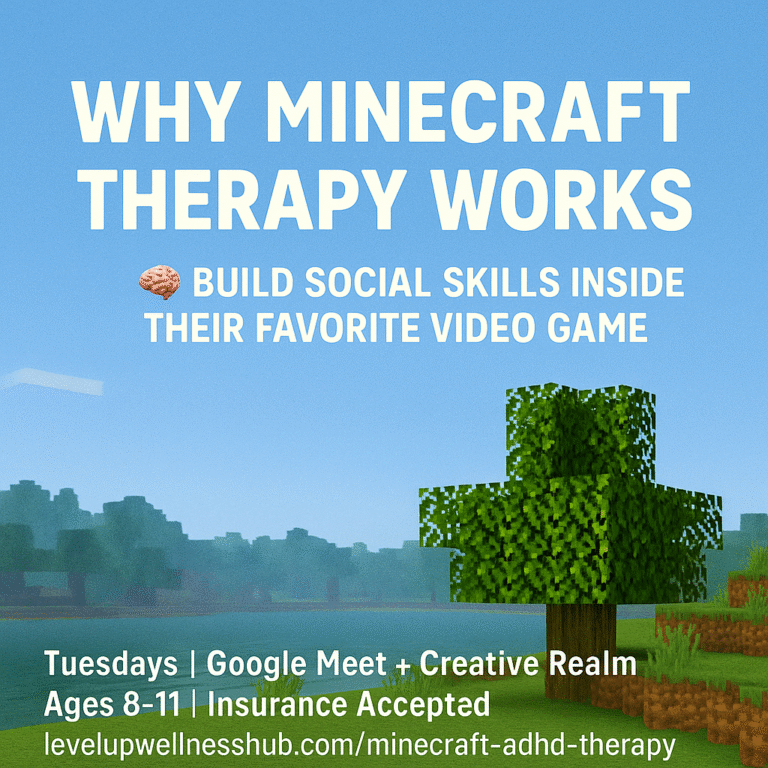When Negative Thinking Becomes Your Default Setting
We all experience negative thoughts from time to time. But when those thoughts repeat often enough, they stop being occasional and start becoming automatic. Before long, negative thinking turns into a habit—a background process shaping how you see yourself, how you talk to yourself, and what you believe you’re capable of.
For many people with ADHD, that shift starts in late childhood. For women navigating perimenopause or menopause, it can resurface later in life. And in both cases, it’s rarely about “not trying hard enough”—it’s about years of internalized messaging that reshape how we view our worth.
The ADHD Connection: How Self-Esteem Starts to Decline
By around late elementary years (roughly age 9–11), many children with ADHD have already absorbed repeated messages like “not trying hard enough,” “always in trouble,” or “too distracted.” Over time, those moments add up and can shape a lower sense of self-worth compared with peers. Research consistently finds that children and adolescents with ADHD report lower self-concept/self-esteem than comparison groups, highlighting the toll of chronic criticism and mismatch with expectations. PMC+1
Because kids are wired to seek connection and approval, many develop people-pleasing behaviors as a coping mechanism—over-apologizing, hiding mistakes, and trying to prove their worth to stay safe from further criticism. Internalizing pathways (anxiety, self-criticism) are a known source of impairment in ADHD and help explain why these patterns stick. PMC
The Midlife Parallel: When Old Narratives Reappear
Fast forward a few decades. You’re an adult woman navigating perimenopause or menopause, and familiar patterns pop back up. When brain fog, forgetfulness, and attention glitches collide with work or partner expectations, the old story replays: “I’m dropping the ball. I’m not enough.” Clinical reviews show perimenopause is linked to difficulties in verbal memory, attention, processing speed, and working memory—changes that can compound ADHD symptoms and self-doubt. PMC
That critical voice feels new—but your brain has heard it before.
Why This Pattern Feels So Familiar
Whether you’re 10 years old being told to “try harder,” or 45 and hearing you’re “not as focused,” the message lands the same: “You’re not meeting expectations.” Your brain wires repeated experiences together, and eventually they become your unconscious baseline.
This is also why some individuals with ADHD experience rejection sensitivity—intense emotional pain around real or perceived criticism—which can drive people-pleasing and over-compensation. It’s a protective strategy, not a personal failing. Cleveland Clinic
Rewriting the Narrative
The good news? Thought patterns are learned—which means they can be unlearned.
Try these prompts when you notice the old script playing:
- “Whose voice am I hearing right now?”
- “Would I speak this way to someone I care about?”
- “What evidence supports a kinder, more accurate interpretation?”
Reframing won’t erase ADHD or hormonal shifts, but it returns control over your inner story. Replace criticism with curiosity. Replace shame with self-compassion. Redefine “doing it differently” as doing it intentionally.
You don’t have to prove your worth to be worthy.
References
- Houck, G. (2010). Self-concept in children and adolescents with ADHD. Journal of Pediatric Nursing. Evidence of lower self-concept among youth with ADHD compared with peers. PMC
- Betancourt, J. L., et al. (2024). Self-esteem in children and adolescents with and without ADHD: A systematic review and meta-analysis. Clinical Psychology Review. Synthesizes lower self-esteem and trajectories across development. ScienceDirect
- Metcalf, C. A., et al. (2023). Cognitive problems in perimenopause: A review of recent findings. Menopause. Links perimenopause with deficits in verbal memory, attention, processing speed, and working memory. PMC
- Bethune, S. C., et al. (2022). The impact of internalizing symptoms on impairment for children with ADHD. Journal of Attention Disorders. Internalizing pathways (e.g., self-criticism/anxiety) contribute to functional impairment. PMC
- Cleveland Clinic (2022). Rejection Sensitive Dysphoria (RSD): Symptoms & Treatment. Patient-friendly overview connecting ADHD and rejection sensitivity.


